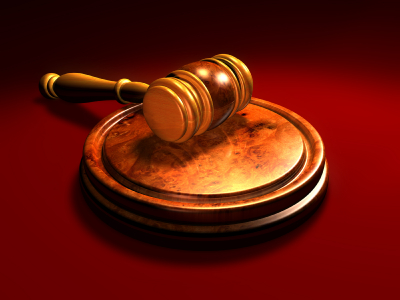Florida governor Ron DeSantis is already facing a legal challenge, after he recently signed a controversial state bill last month that targets social networking firms, and how they moderate online content.
The Florida bill is the first time that a US state has enacted such legislation, and it effectively requires social networking firms such as Facebook and Twitter, to only suspend political candidates accounts for 14 days for content violations.
It comes after Twitter, Facebook and YouTube banned former President Donald Trump for his role in inciting a mob of his supporters to storm the US Capitol building on Wednesday 6 January, which resulted in the deaths of five people (including one police officer who was beaten to death).
![]()
Florida law
Republican Governor of Florida, Ron DeSantis, when he signed the bill, had publicly blamed a “council of censors” in Silicon Valley for shutting down debate over Covid-19 lockdowns and the origins of the coronavirus.
The SB 7072 bill DeSantis signed essentially prohibits tech platforms from suspending or banning political candidates in the state, with possible fines of $250,000 per day if the de-platformed candidate is seeking statewide office, and $25,000 per day if the candidate is running for a non-statewide office.
The legislation also gives Florida residents the ability to sue tech companies for de-platforming.
Similar bills have also been considered in states such as Arkansas, Kentucky, Oklahoma and Utah, US media has reported.
Tech fightback
But now the tech industry is fighting back and a lawsuit was filed last week by several trade groups against the SB 7072 bill signed by DeSantis.
Both trade groups have called Florida’s law a “blatant attack” on the First Amendment rights of private businesses, and allege the law is both unconstitutional and violates federal law.
“The Computer & Communications Industry Association has co-filed a lawsuit with NetChoice in a Florida federal district court against a recently signed Florida law,” said the CCIA. “The law, were it to enter into force, would open digital services that allow third-party content to lawsuits when they enforce terms or policies designed to keep users safe.”
“The lawsuit explains that the law is unconstitutional and violates federal law,” it added. “The Florida law infringes on rights of freedom of speech, equal protection, and due process, as protected by the First and Fourteenth Amendments to the US Constitution.”
The CCIA said it supports free speech online, which includes the right for private businesses to protect users and determine what material is appropriate for their community.
Dictatorship move
“We are bringing this suit to safeguard the industry’s free speech right to deliver on their commitments to users to mitigate harmful content online,” explained CCIA President Matt Schruers.
“By constraining digital services’ ability to fight bad actors online, this law threatens to make the Internet a safe space for criminals, miscreants, and foreign agents, putting Floridians at risk,” said Schruers. “Gov. DeSantis is correct that this is a free speech issue: a digital service that declines to host harmful content is exercising its own First Amendment rights.”
“US free speech principles protect the public from government penalties for speech; they do not protect elected officials from the speech choices of the public,” said Schruers. “Forcing a company to publish government officials’ speech is more characteristic of last-century dictatorships than 21st-century democracies.”
NetChoice also waded into the issue.
“We cannot stand idly by as Florida’s lawmakers push unconstitutional bills into law that bring us closer to state-run media and a state-run internet,” added Carl Szabo, VP and General Counsel at NetChoice.
Facebook, Google and Twitter are members of both trade groups.





